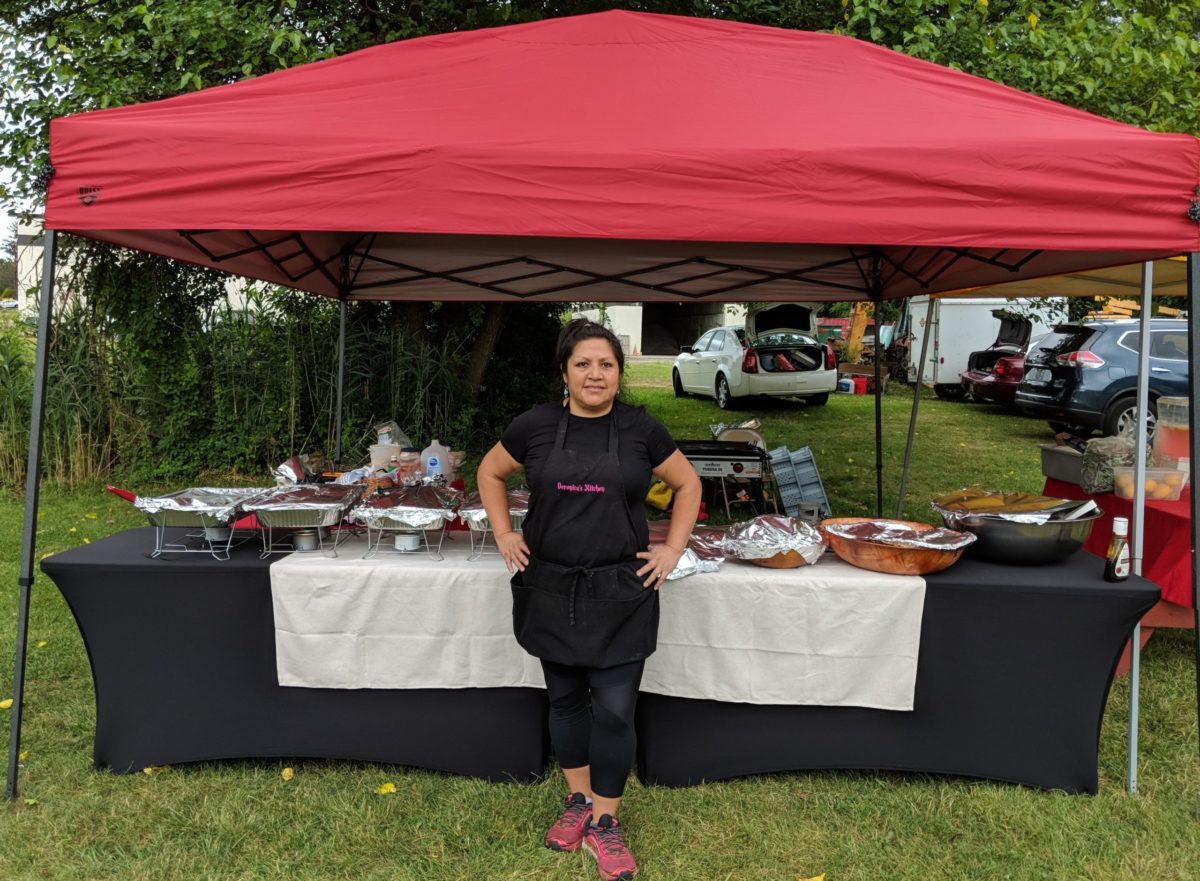One thing we learned from the Seeking Equity in Wilmington series, underwritten by the Wilmington Alliance, is that establishing a food service business can be incredibly difficult for entrepreneurs without a lot of capital and bank support.
Irene Castañeda, founder of Veronica’s Kitchen, started her Mexican food business out of her car, graduated to farmers’ markets and festivals, and had a popup location in downtown Wilmington before COVID-19 stopped her business in its tracks. With no prospect of receiving emergency aid or a business loan, and filling catering orders from a home kitchen that is not equipped for commercial cooking, she is just the kind of business owner to fit with a developing Kitchen Incubator project by Wilmington Alliance, Grace United Methodist Church at 900 N. Washington St., and The Rock Lot CSA.
Like many churches, Grace has a large kitchen for congregation events and, at one time, a soup kitchen. But it hasn’t been used in a while, making it a potential goldmine of a basis for a kitchen incubator.
“Commercial kitchens are incredibly expensive to build from scratch,” said Laura Semmelroth, who is leading the Kitchen Incubator initiative. While the space needs renovations to build it up to code, having an existing kitchen to build on has helped made the project possible.
The incubator will offer kitchen space to members on a schedule basis, which they can use to prepare catering orders, do food truck prep, develop ideas, make large batches of product like hot sauce or jams — whatever they need a commercial kitchen for. Members will also have an opportunity to sell products directly to members of the Rock Lot CSA via an online add-on ordering platform that allows customers to purchase prepared items to be picked up with their farm share produce, without the table browsing that some shoppers avoid due to COVID-19.
Access to a commercial kitchen can help bring some small businesses from the “informal economy” of freelancing and small-time contracting to the mainstream economy, which gives them more opportunity for success and more access to programs — as well as more tax revenue for the city (and, in theory, more programs like this).
“When we announced the Wilmington Strong fund, one thing I heard was, ‘I don’t have a business license, can I still apply?'” said Renata Kowalczyk, CEO of Wilmington Alliance. “It’s an opportunity to be elevated, with the right support, to being in the formal economy.”
Castañeda, a graduate of the Launcher Entrepreneurship Program at West End Neighborhood House, learned about the developing kitchen incubator from Cornerstone West CDC President and CEO Sara Lester and Economic Development Manager Gabrielle Lantieri.
“I went to the first meeting and it was very interesting, because people like me want to sell their products but we don’t have the chance to have enough money to have a restaurant even if our products are good,” she said.
If things go well, Kowalczyk and Semmelroth hope to see the program expand, with more incubators in different parts of the city, and potential opportunities for members to sell their food through a cafe connected to the program. Currently, Grace Church plans to open a cafe in the building for the congregation that will also be a pilot for a public-facing cafe.
For now, the focus is on refurbishing the space for a projected launch in Q1 of 2021. If you’re interested in getting involved with the Kitchen Incubator, contact Wilmington Alliance via its website.
Before you go...
Please consider supporting Technical.ly to keep our independent journalism strong. Unlike most business-focused media outlets, we don’t have a paywall. Instead, we count on your personal and organizational support.
Join our growing Slack community
Join 5,000 tech professionals and entrepreneurs in our community Slack today!

Expect even more drones over NJ, Delaware and PA this year — thanks to agriculture, the military and hobbyists

Four ways Trump could upend the tech world in his first 100 days

Trump revokes Biden’s AI order, but safety consortium won’t yet dissolve


